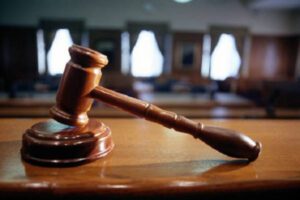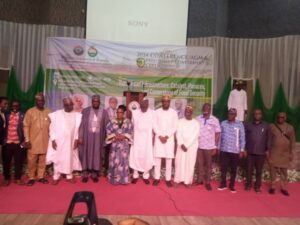
Estate surveyors & valuers must operate under high ethical standards —Eleh
Associate Member of the Nigerian Institution of Estate Surveyors and Valuers, Emeka Eleh said the stakeholders must operate to high ethical standards in a move to address image problem facing the industry.
Speaking on a paper titled, “Professionals and the Public Good Paper” at 27th J.W. Ekpenyong Memorial Lecture in Lagos, he said stakeholders must bear in mind to deliver good service especially the model that protects public interest and public good is the best way to build trust with the people.
According to him, “It is appropriate considering the thrust of this event, to pay some attention to the role of the Nigerian Institution of Estate Surveyors and Valuers in the pursuit of public interest and public good.
“Like all other professionals, our members operate in both the public and private sectors and the real estate sector is particularly of vital importance to the society and the Government.
“It thus behoves us to practice our calling to the highest ethical standards and always consider not just our immediate client’s interest but the effect our advice or actions may have on the overall public interest. This is more so because of the poor perception of our members and our services in the public eye which negatively affects the image of the profession.
“One way to address this image problem is to ensure that our members operate to high ethical standards, bearing in mind that good service delivery especially the model that protects public interest and public good is the best way to build trust with the people.
“We must bear in mind that any time we give wrong opinion either for rent passing or sale prices or when we give a wrong opinion of value of a property during a valuation process in order to satisfy a client or for pecuniary gain or anytime, we generally act unethically, it only distorts the system, damages trust in the profession and ultimately does not enhance public good. Such advice may serve the narrow personal interest of the client (and the Surveyor involved) but will certainly not be in the public interest as the Surveyor would have only foisted a wrong opinion on the public domain.
“At the corporate level, the Institution must continue to lead advocacy on vital issues of interest like affordable housing, land reform, property taxation etc. There is also a need to champion the enthronement of new and better ways of rendering our services.
“Of particular note is the need for the establishment of an active multiple listing service and the creation of a standardized data bank of real estate rates and yields which will assist us in valuation advisory work.
“The above two issues are certainly not exhaustive but when addressed will not only make our work easier but will also add value to our service delivery as well as assure the public that we are ‘listening’ and changing with the times.
“There is yet so much to be done to make a difference. Yes, we need to protect our members interest, but we should also always strive to protect the public interest and the public good.
“In the end, every professional must live his calling and play his role in and out of the workplace bearing in mind that his actions and inactions affect the integrity, hopes and aspirations of the professions as a whole.
“Every professional must work not just to defend the interest of his client or employer but must always maintain the vital dual focus of not just performing the task set before him but also rising to the higher calling of protecting the public interest and enhancing the common good in the discharge of his duties, whether in the private or public sector.
“It is only by so doing that the society as whole can feel and benefit from the impact of our training and expertise.
“We must always bear in mind that in our peculiar environment, most people may not afford our services and it is only when we rise to the higher calling of operating in a way that directly or indirectly enhances the common good that they can benefit. This will not only reinforce trust in the professions but will also make the society a better place.”
According to him, the regulatory boards set up by the Government to regulate professional associations also have a huge role to play.
In his words, “In most instances, every professional not only have to be licensed by the respective Board to practice but indeed owes a continuing obligation to the Board to practice in accordance with set rules failing which his or her licence can be withdrawn.
“The Boards thus have immense disciplinary power to call their licencee to order. Unfortunately, this power is very rarely used which has led to the low level of trust in the professions. Where it is used at all, it is to sanction professionals in private practice.
“Yet the professional infractions that indeed cause more damage to the society and adversely impact the common good are perpetrated by professionals in government and the civil service.
“How often has a Board or Professional Association sanctioned a serving officer of the government or a civil servant for actions taken against the public interest.
“A plethora of public cases exists against these cadre of professionals and some indeed get conclusively resolved by the courts but the Boards and Association remain silent.
“This is not only harmful to the professions as it fuels negative public cynicism but it also adversely impacts the public interest which the Boards and Professional Associations are expected to defend.”



